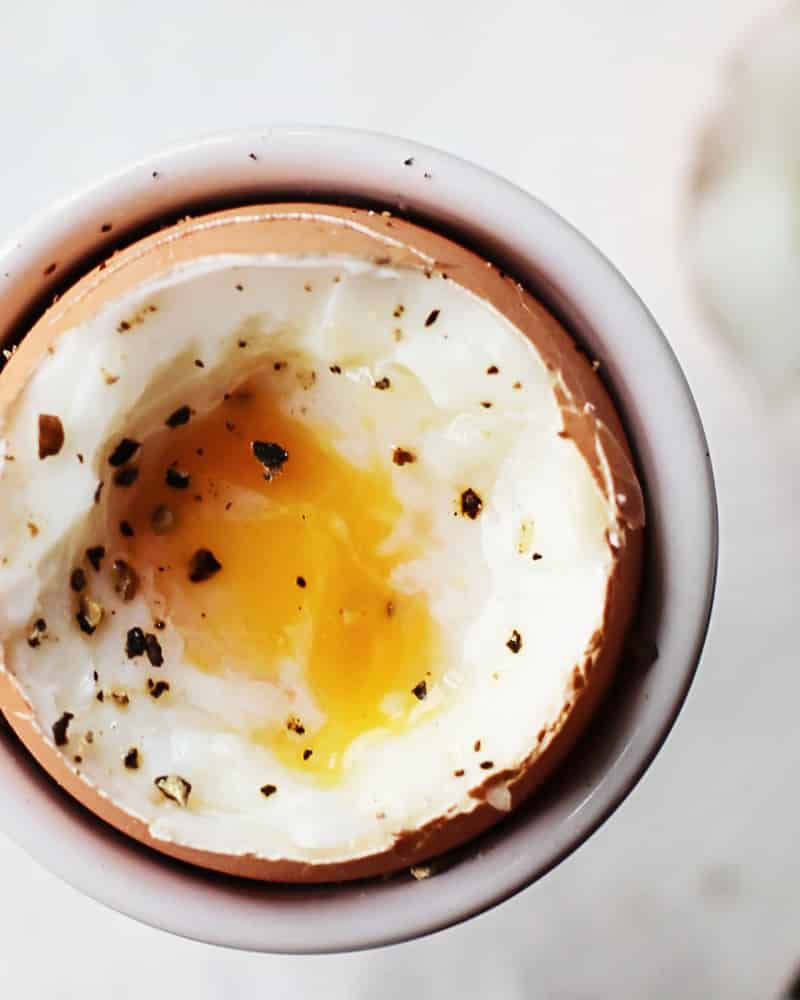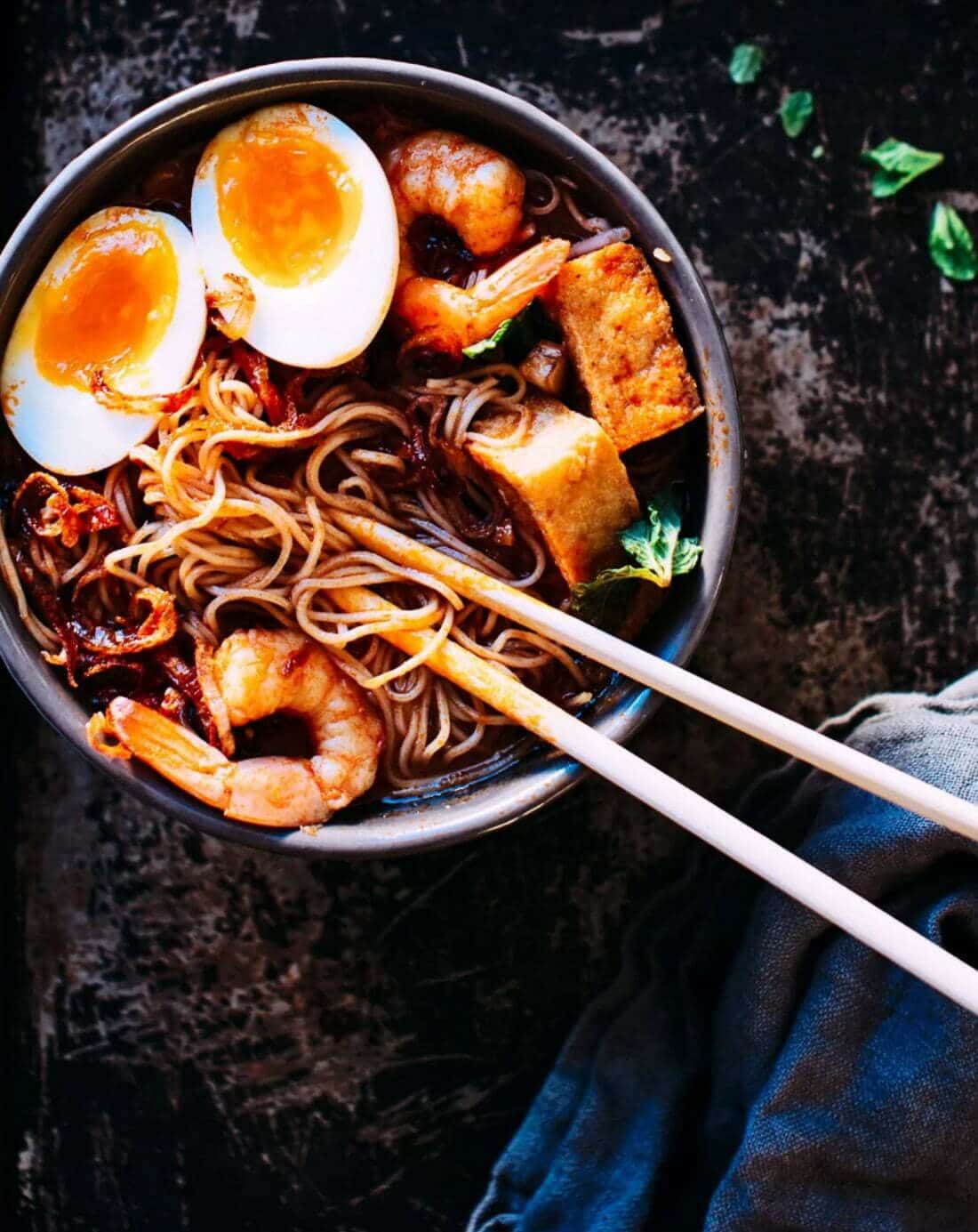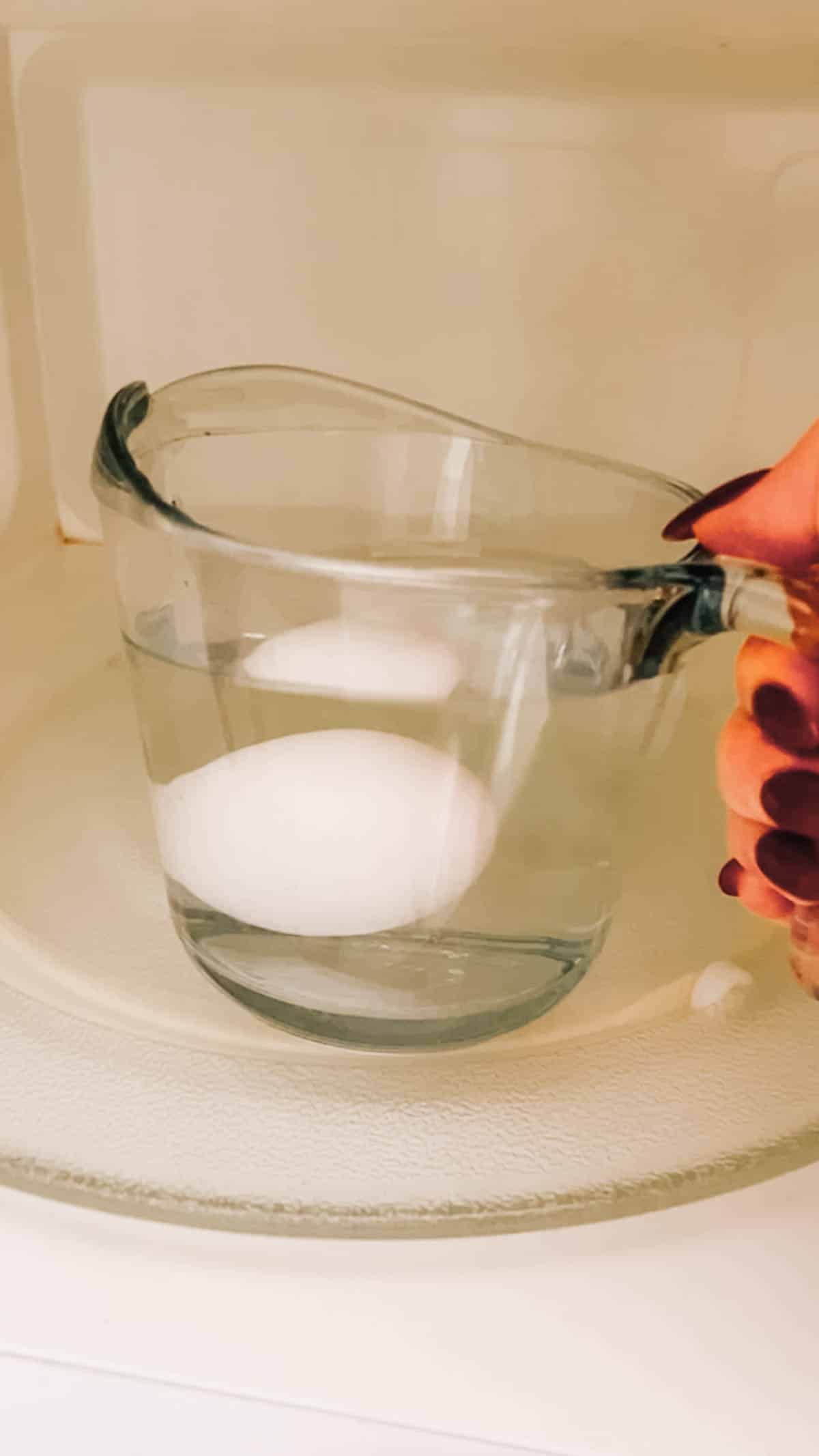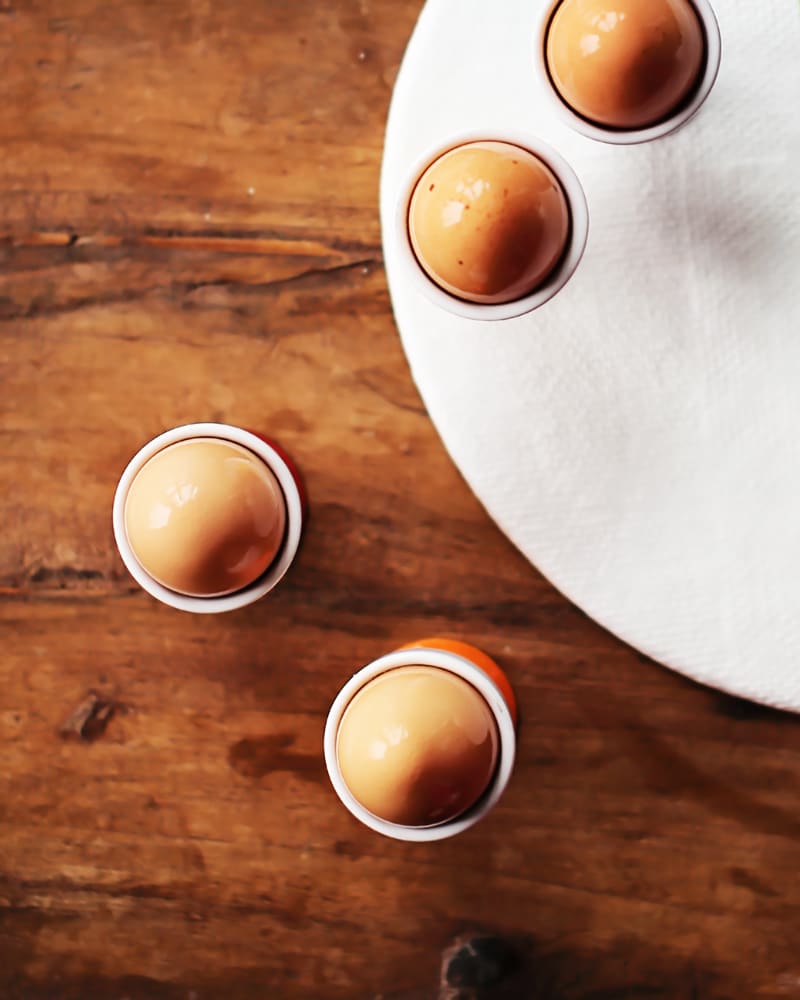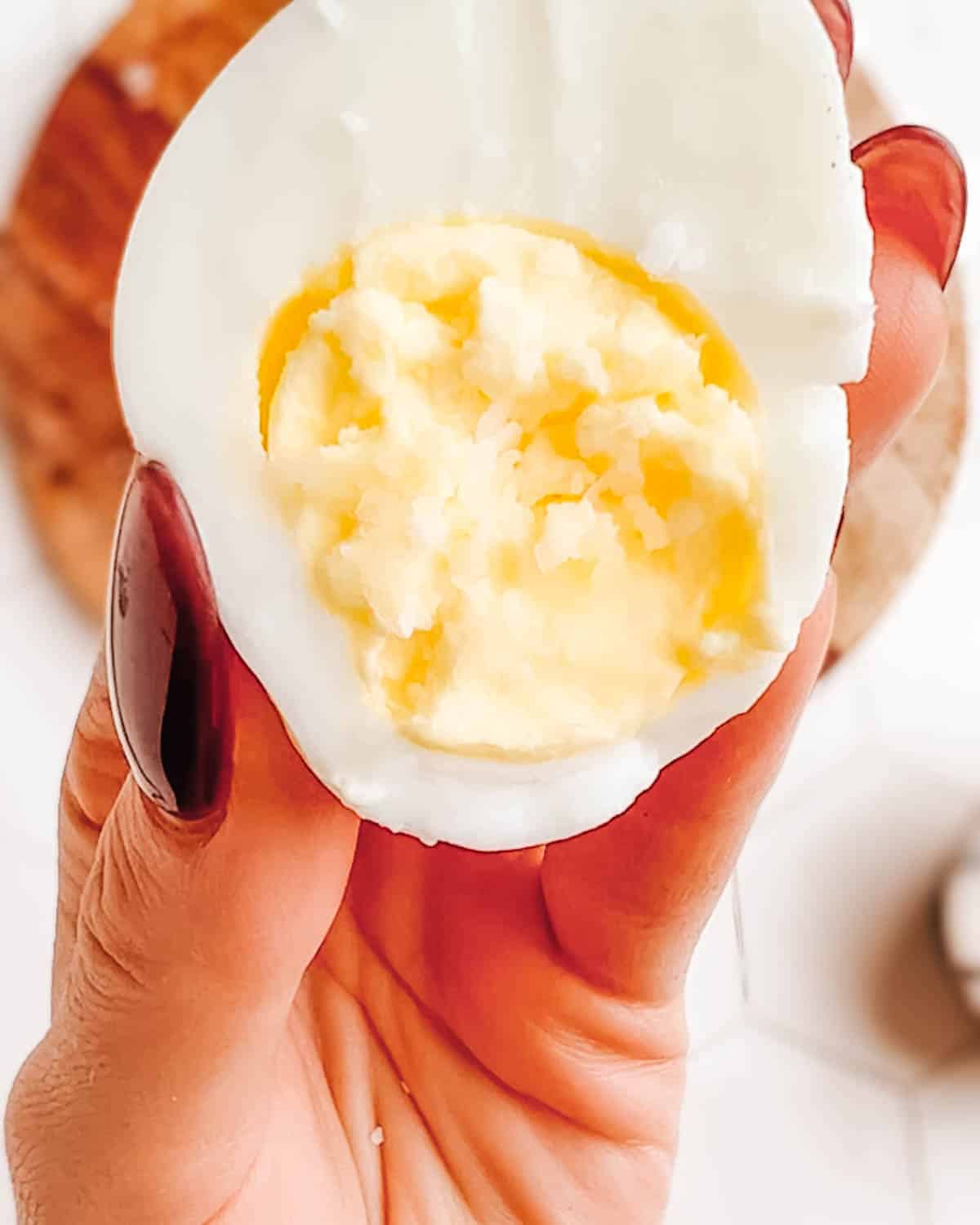Soft Boiled Eggs vs Hard Boiled Eggs (Pros and Cons + Best Uses!)
Mar 01, 2024
Soft Boiled Eggs vs Hard Boiled Eggs: As a dietitian and recipe developer, I explain the differences between soft and boiled eggs, including if one is healthier, food safety, and the best way to cook them.
Soft Boiled Eggs Vs Hard Boiled Eggs: A Quick Glance
Both hard-boiled and soft-boiled eggs offer similar nutrition. Soft-boiled eggs may retain more nutrients, while hard-boiled eggs are convenient for storage and snacking.
The one health consideration to possibly keep in mind is that soft-boiled eggs are not fully cooked. The difference in nutrition is really negligible. Read on for the full details, plus best cooking methods and how to use them.
Salmonella Risk: Soft vs Hard Boiled Eggs
The Centers for Disease Control and Prevention (CDC) and the Food and Drug Administration (FDA) both highlight the dangers of Salmonella, a common cause of food poisoning that can be found in eggs not cooked thoroughly. The symptoms of Salmonella infection include diarrhea, fever, abdominal cramps, and vomiting, appearing 12 to 72 hours after eating contaminated food.
The FDA stresses the importance of buying, storing, preparing, and serving eggs correctly to reduce the risk of illness. \
According to the CDC, if you don’t cook eggs to a safe internal temperature of 160ºF, it increases risk of foodborne illness from salmonella.
The food safety guidance is therefore to cook eggs until both the yolk and the white are firm. The American Egg Board echoes this advice, underscoring the importance of cooking eggs until there’s no visible liquid egg remaining to prevent foodborne illness.
Possible Nutritional Differences: Soft vs. Hard Boiled Eggs
There are some studies suggesting potential benefits to shorter cooking times, but the overall differences in nutrient content between soft and hard-boiled eggs are likely minimal.
Potential Benefits of Shorter Cooking:
- A study published in a food chemistry journal found that boiling eggs for longer periods led to a decrease in the levels of certain vitamins and minerals, including vitamins A, B1, B2, and E, as well as iron and zinc. However, the differences were relatively small, and the study did not specifically compare soft-boiled and hard-boiled eggs.
Based on the current evidence, the differences in nutrient content between soft and hard-boiled eggs are likely insignificant.
Other factors like safety and personal preference might be more relevant considerations when choosing between them.
So Which Is Better – Soft or Hard Boiled Eggs?
Moving past the potential risks of eating undercooked eggs, the choice between soft and hard boiled eggs comes down to personal preference. Boiled eggs are a power-packed ingredient. They contain so much: vitamins, macronutrients, minerals, and protein.
They are also super versatile. Soft-boiled eggs are delicious and usually eaten warm for breakfast.
Hard-boiled eggs are great in salads and laid out on toast with black pepper and a crunch of rustic salt.
How do these two types of boiled eggs differ? Here’s the lowdown.
What Is a Soft Boiled Egg?
A soft-boiled egg has been cooked in its shell in boiling water for a shorter period than a hard-boiled egg.
A perfectly cooked soft-boiled egg is tender. It has a partially set white and a runny yolk.
When properly prepared, the white should be fully cooked but still delicate and slightly gelatinous, while the yolk remains liquid and creamy.
How To Cook Soft Boiled Eggs
Here are the basic instructions to cooking eggs to soft-boiled stage (based on medium to large eggs)
- Step 1: Start by placing fresh eggs in a pot of water (cold). Bring the water to a boil over medium-high heat.
- Step 2: Once boiling, reduce the heat to a simmer and continue cooking for 6 minutes. If you are after a very runny yolk, aim for 4 minutes.
- Step 3: Remove the eggs from the pot with a slotted spoon. Transfer them to an ice bath to cool down before peeling.
Tip: Start with eggs at room temperature, as cold eggs may crack in boiling water. If you cook a few eggs, arrange them in a single layer.
How Do You Know When a Soft Boiled Egg Is Done?
You can determine when a soft-boiled egg is done by timing the cooking process carefully.
Generally, for a soft-boiled egg with a runny yolk and a set white, cooking for about 4 to 6 minutes after the water reaches a rolling boil is enough.
Keep in mind though it may vary slightly based on the size of the egg.
Note: The egg white should be fully set, with no translucent areas, while the yolk remains liquid and creamy.
Tip: Using a timer and periodically checking the eggs can help ensure they don’t overcook.
Once the cooking time is complete, remove the eggs from the boiling water and cool them down to stop the cooking process.
How To Serve Soft-boiled Eggs
Here are a few delicious ways to serve your velvety soft-boiled eggs:
- On toast or with “soldiers”: Place soft-boiled eggs on top of buttered toast soldiers (long, thin strips of toast) for dipping.
- In ramen or noodle soup: Add soft-boiled eggs to a bowl of hot ramen or noodle soup. Here are my two favs: Spicy Ramen and the viral Chili Oil Ramen
- With avocado toast: A crack of salt and pepper and a drizzle of extra virgin olive oil.
- On salads: Halve soft-boiled eggs and serve them on top of salads. This works well in a Nicoise salad or a simple green salad, to add protein and creaminess.
- With asparagus: Serve them alongside steamed or roasted asparagus spears. SO classic.
- In Bibimbap: Top bibimbap, a Korean mixed rice dish, along with vegetables, meat, and spicy sauce with soft, dreamy boiled eggs.
- In savory breakfast bowls: Add soft-boiled eggs to breakfast bowls with grains, greens, avocado, and other toppings.
- In rice dishes: Add soft-boiled eggs to fried rice or rice bowls.
These are just a few ideas, but the versatility of soft-boiled eggs makes them an easy way to add protein to your meal.
What Is a Hard Boiled Egg?
A hard-boiled egg is an egg that has been boiled in water in its shell until both the egg white and yolk are fully set and firm.
The cooking process denatures the proteins in the egg, causing the white and yolk to solidify.
Unlike soft-boiled eggs, hard-boiled eggs have a firm texture throughout, with both the white and yolk fully cooked.
They are delicious in salads, sandwiches, and as a standalone snack! I love how portable they are and that, as a snack, they last a long time in the refrigerator.
How To Cook Hard Boiled Eggs
Here’s how to cook a hard boiled egg the traditional way:
- Step 1: Firstly, place the eggs in a pot of cold water. Bring the water to a boil over medium-high heat.
- Step 2: Once boiling, reduce the heat to a simmer and continue cooking 7-9 minutes for medium eggs. For completely hard-boiled eggs, cook them for 10-12 minutes. This will give you hard boiled eggs without any runniness.
- Step 3: Finally, remove the eggs from the pot and transfer them to a bowl of ice water to cool down before peeling.
To save yourself the time (and pot to washing), make quick 8-minute eggs with my guide to boiling eggs in the microwave.
How Do You Know When a Hard Boiled Egg Is Done?
Here are the 4 ways I use to test if eggs are hard-boiled:
- Texture: Hard-boiled eggs have a firm texture throughout, both in the white and the yolk. When you press gently on a hard-boiled egg, it should feel solid with no give.
- Color: The eggshell of a hard-boiled egg usually appears uniformly white or off-white. It shouldn’t be translucent or have any soft areas.
- Floating test: Place the egg in a bowl of water. A hard-boiled egg will typically sink to the bottom and lie horizontally. If it stands on one end at the bottom, it’s probably still fresh or partially cooked. If it floats to the surface, it should be thrown away, indicating it could be bad.
- Peeling: If the shell comes off cleanly and easily, leaving a smooth surface on the egg white, it’s likely hard-boiled.
These are helpful indicators to determine if an egg has been hard-boiled successfully.
How To Serve Hard-boiled Eggs
Here are a few fun ways to serve hard-boiled eggs:
- Deviled eggs: Halve hard-boiled eggs, remove the yolks, mix them with mayonnaise, mustard, and seasonings.
- Egg salad sandwich: Chop hard-boiled eggs and mix them with mayonnaise, mustard, salt, and pepper. I love this egg recipe!
- Cobb salad: Include chopped hard-boiled eggs along with bacon, avocado, tomatoes, and blue cheese.
- Potato or Macaroni Salad: Add chopped, boiled eggs to this creamy potato salad or my best macaroni salad recipe.
- Nicoise salad: Arrange hard-boiled eggs on a bed of mixed greens, alongside tuna, olives, green beans, and tomatoes for an authentic Nicoise salad.
- In Bento boxes: Include hard-boiled eggs as a protein component in bento boxes, accompanied by other items like vegetables, fruits, and rice.
These are just a few ideas; there are endless ways to serve and eat hard-boiled eggs.
Protein in Soft Boiled Eggs vs Hard Boiled Eggs
According to Harvard School Of Public Health, the protein content of a whole egg is approximately 6 grams.
Boiled eggs, whether hard-boiled or soft-boiled, are excellent sources of protein. The protein content in eggs remains the same regardless of whether they are cooked as hard-boiled or soft-boiled.
Eggs are renowned for their high-quality protein, containing all nine essential amino acids the human body requires. Next reading: Egg Whites vs Egg Yolks
Cholesterol in Soft Boiled Eggs vs Hard Boiled Eggs
Boiled eggs, whether hard-boiled or soft-boiled, contain cholesterol predominantly in the egg yolk. There are roughly 186mgs of cholesterol in an egg.
While the cholesterol content remains the same regardless of how the egg is cooked, it’s worth noting that boiling eggs doesn’t add extra cholesterol.
Calories in Soft Boiled Eggs vs Hard Boiled Eggs
Boiled eggs, whether hard-boiled or soft-boiled, contain similar calories per egg.
The calorie content is primarily derived from the protein and fat present in the egg, with a large egg typically containing around 70 calories.
Vitamins and Minerals in Boiled Eggs
Hard-boiled and soft-boiled eggs have similar nutritional profiles:
- Fat: The fat content in hard-boiled and soft-boiled eggs is primarily found in the egg yolk. While the total fat content remains the same, the texture and consistency of the yolk varies between hard and soft-boiled eggs.
- Vitamins: Boiled eggs are rich in various vitamins, including vitamin A, vitamin D, vitamin E, and vitamin B12. These vitamins play crucial roles in immune function, vision, bone health, and energy metabolism. The vitamin content remains consistent regardless of whether the egg is hard-boiled or soft-boiled.
- Minerals: Eggs contain essential minerals such as iron, phosphorus, zinc, and selenium. These minerals are important for various physiological processes, including red blood cell formation, bone health, and antioxidant function. The mineral content in hard-boiled and soft-boiled eggs is similar.
Both types of boiled eggs are nutrient-dense foods that can be incorporated into a balanced diet to provide essential nutrients and promote overall health and well-being.
FAQs: Soft Boiled Eggs vs Hard Boiled Eggs
Just skimming through? Here are the key takeouts from this post:
Which are healthier, soft or hard-boiled eggs?
Neither soft or hard-boiled eggs are considered healthier than the other. That’s the short answer. Read on for the full scoop.
What’s the difference between hard-boiled and soft-boiled eggs?
Hard-boiled eggs are cooked until the white and yolk are firm, while soft-boiled eggs have a runny yolk and a partially set white.
Are there nutritional differences between hard and soft-boiled eggs?
Nutritionally, both types of eggs are similar, offering high-quality protein, vitamins, and minerals. The cooking method doesn’t significantly alter the nutritional content.
How do I know when a hard-boiled egg is done?
A hard-boiled egg is fully cooked when the white and yolk are firm.
Next Reading:
- Perfect boiled egg in the microwave
- Foolproof method for cooking eggs any way
- How to poach eggs in the microwave
- Eggs over medium – perfect every time!
- Best substitutions for eggs in any recipe
- Aquafaba vs Egg White
- How to Bring Eggs to Room Temperature
